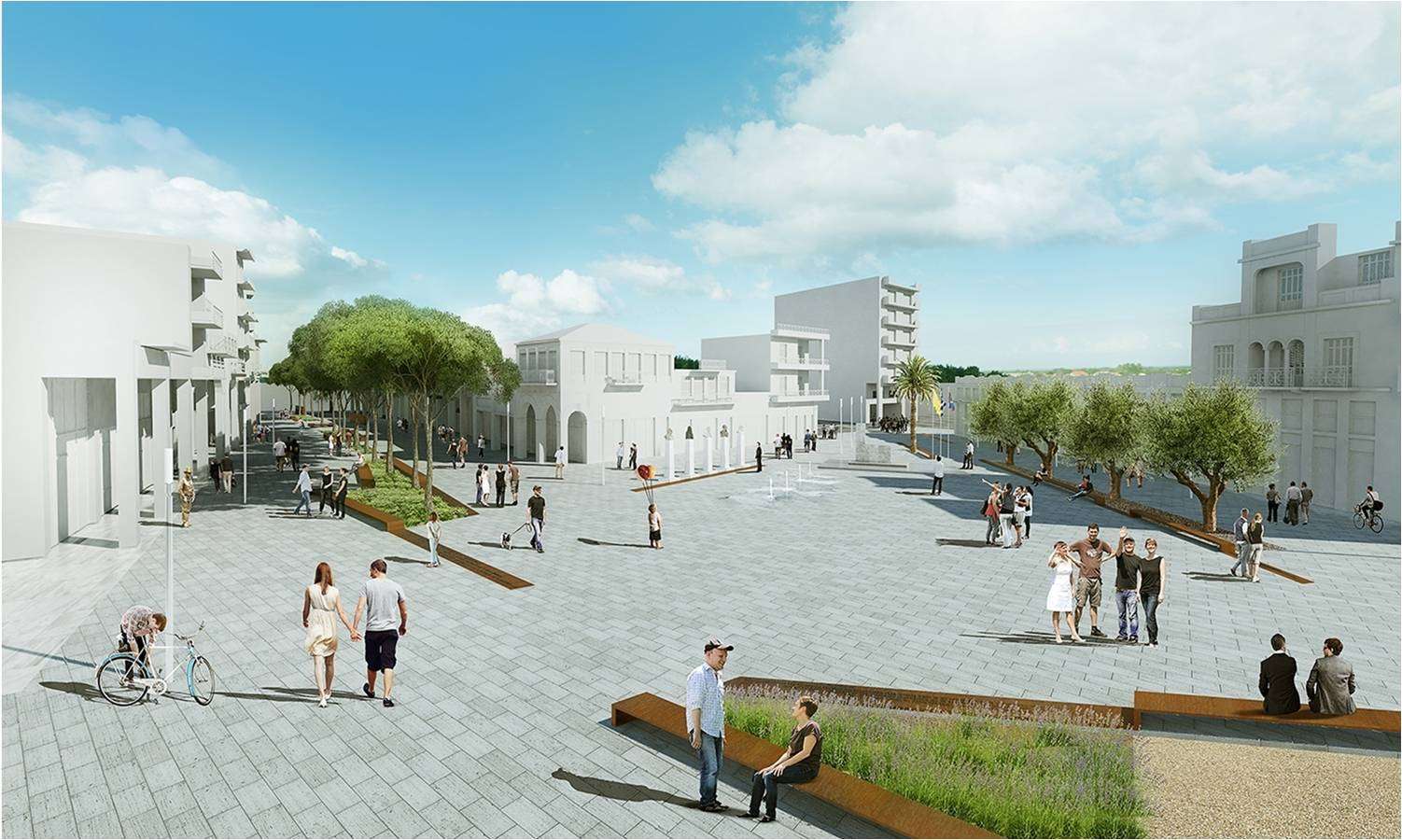
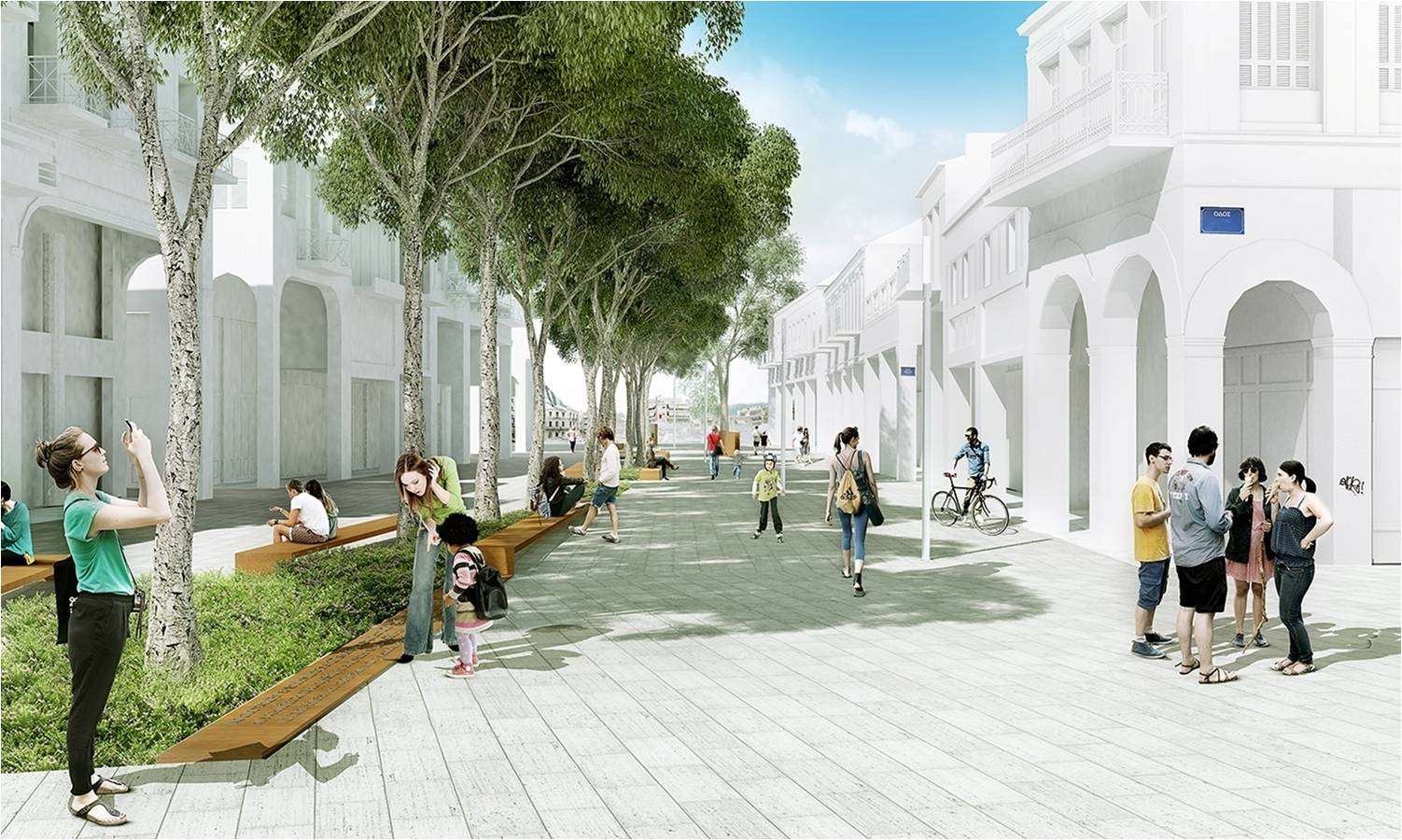
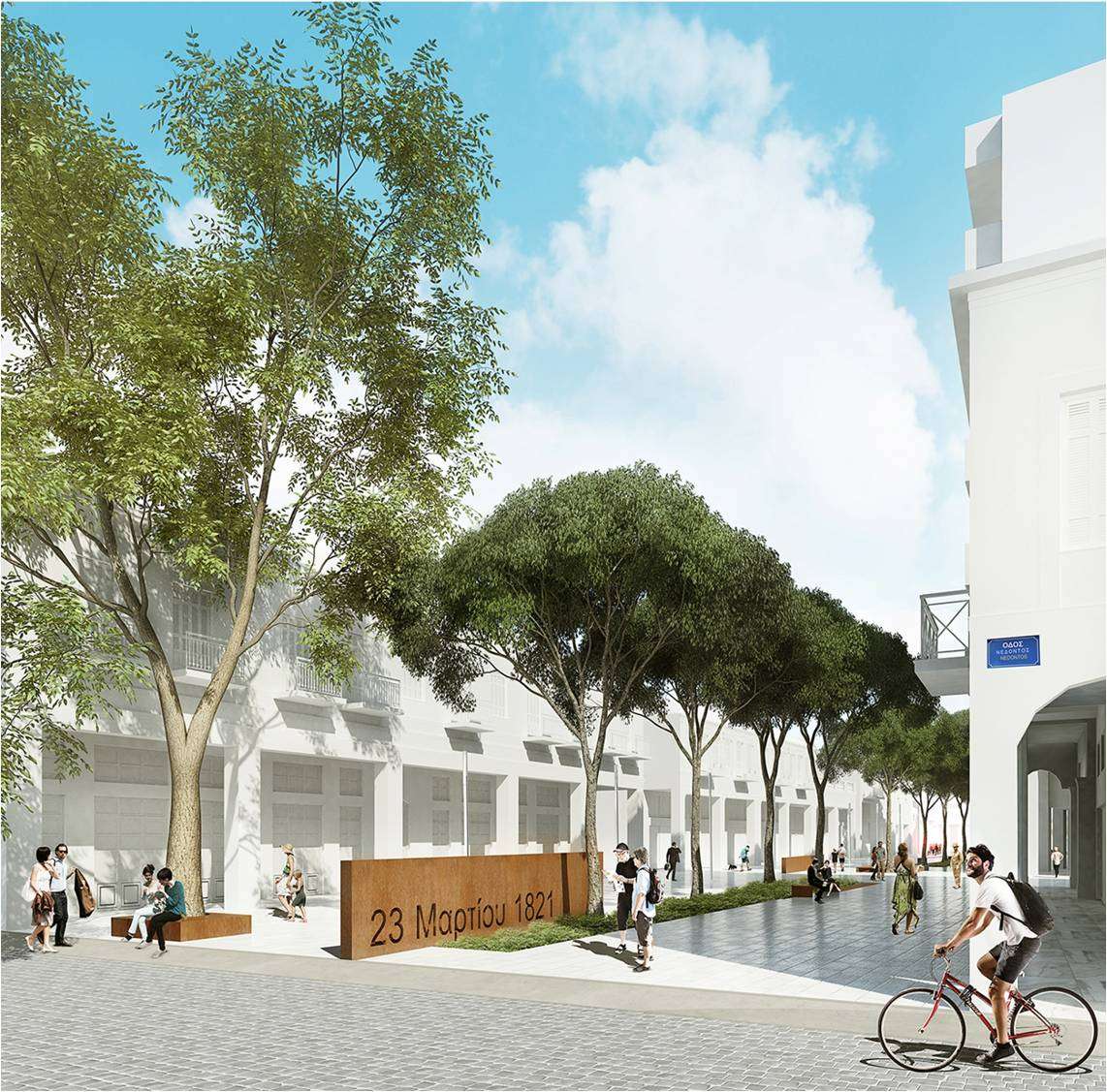
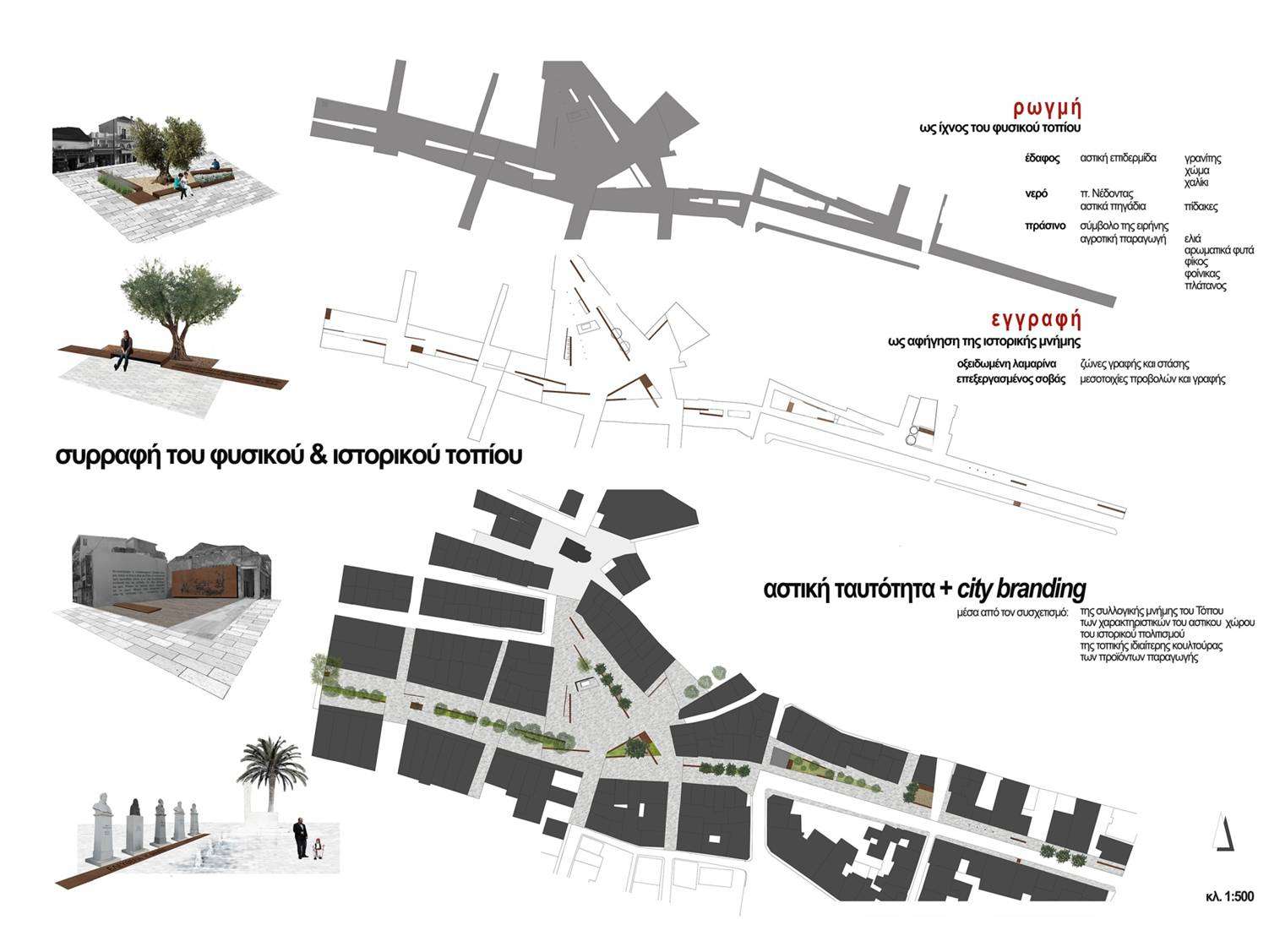
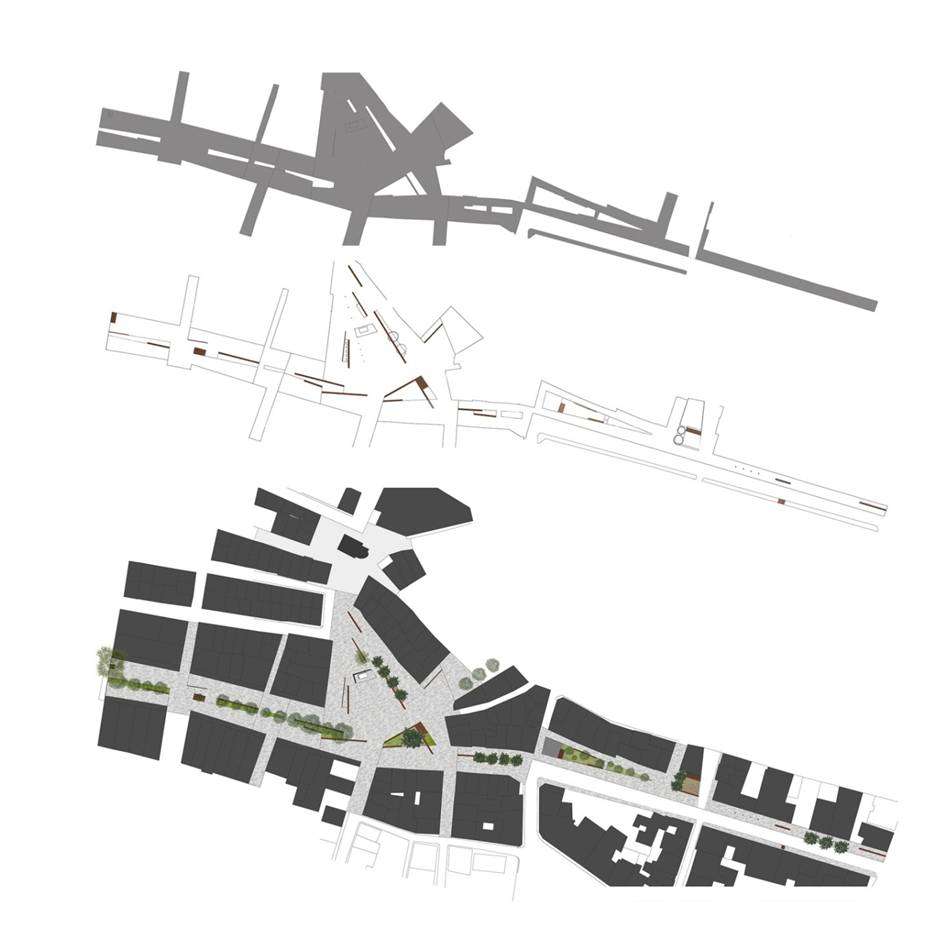
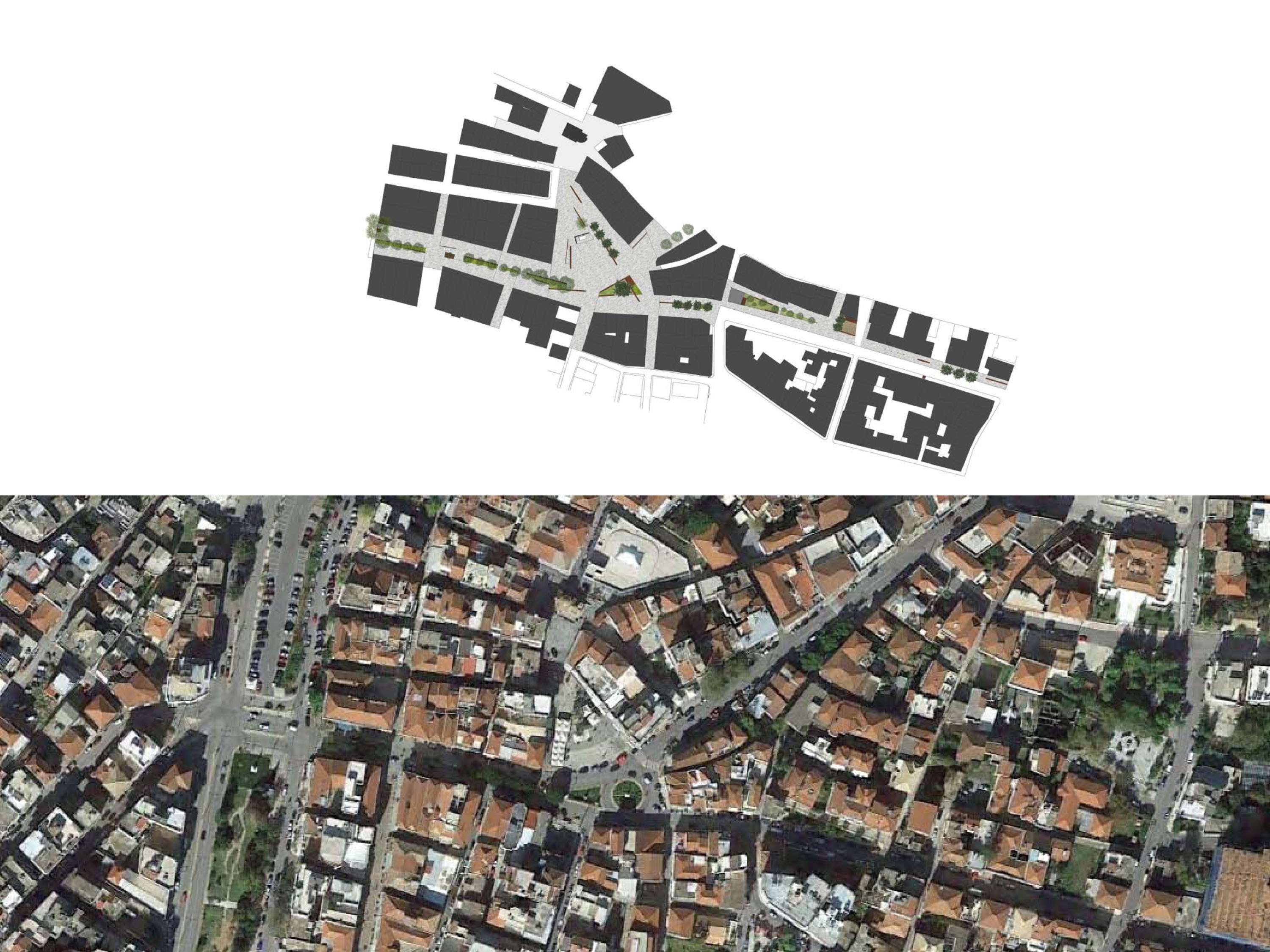
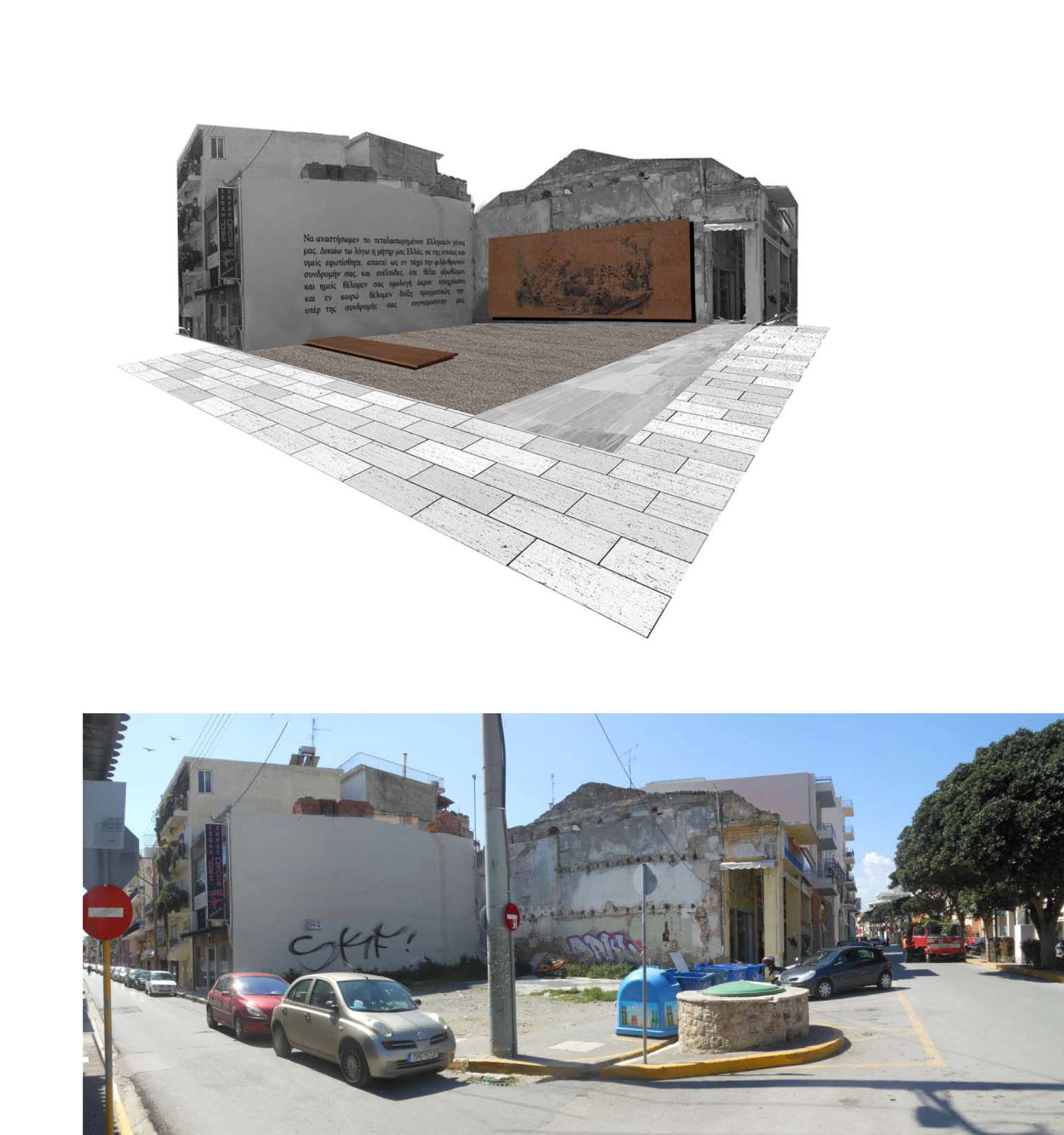
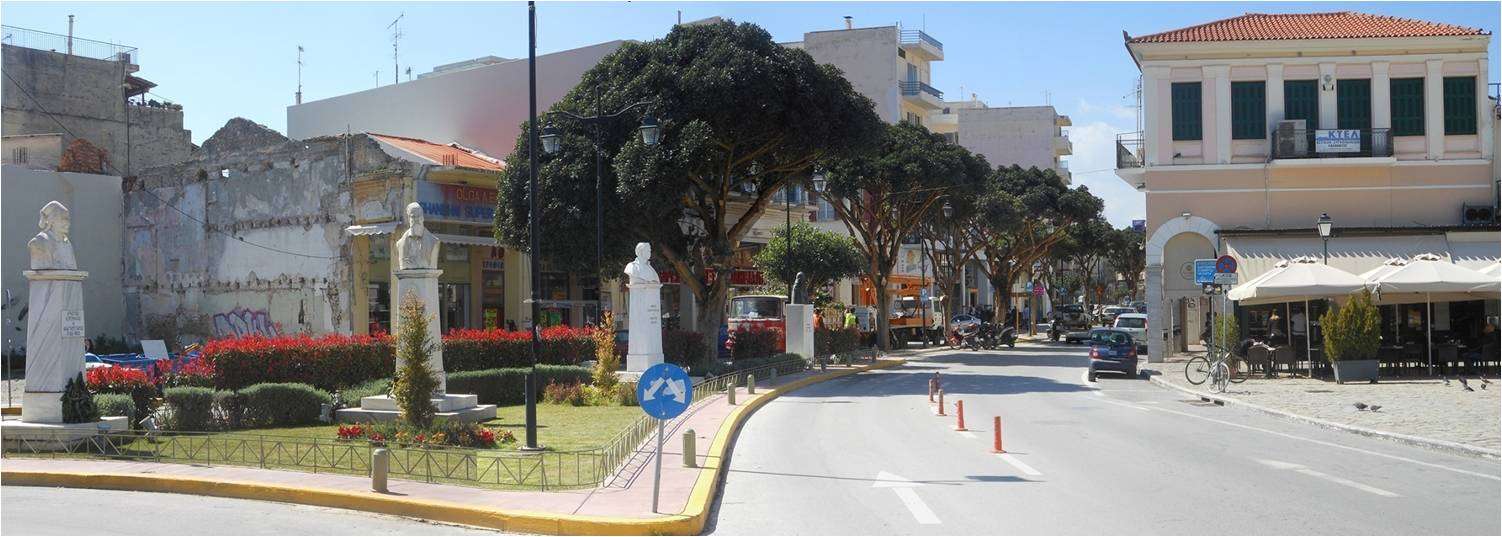
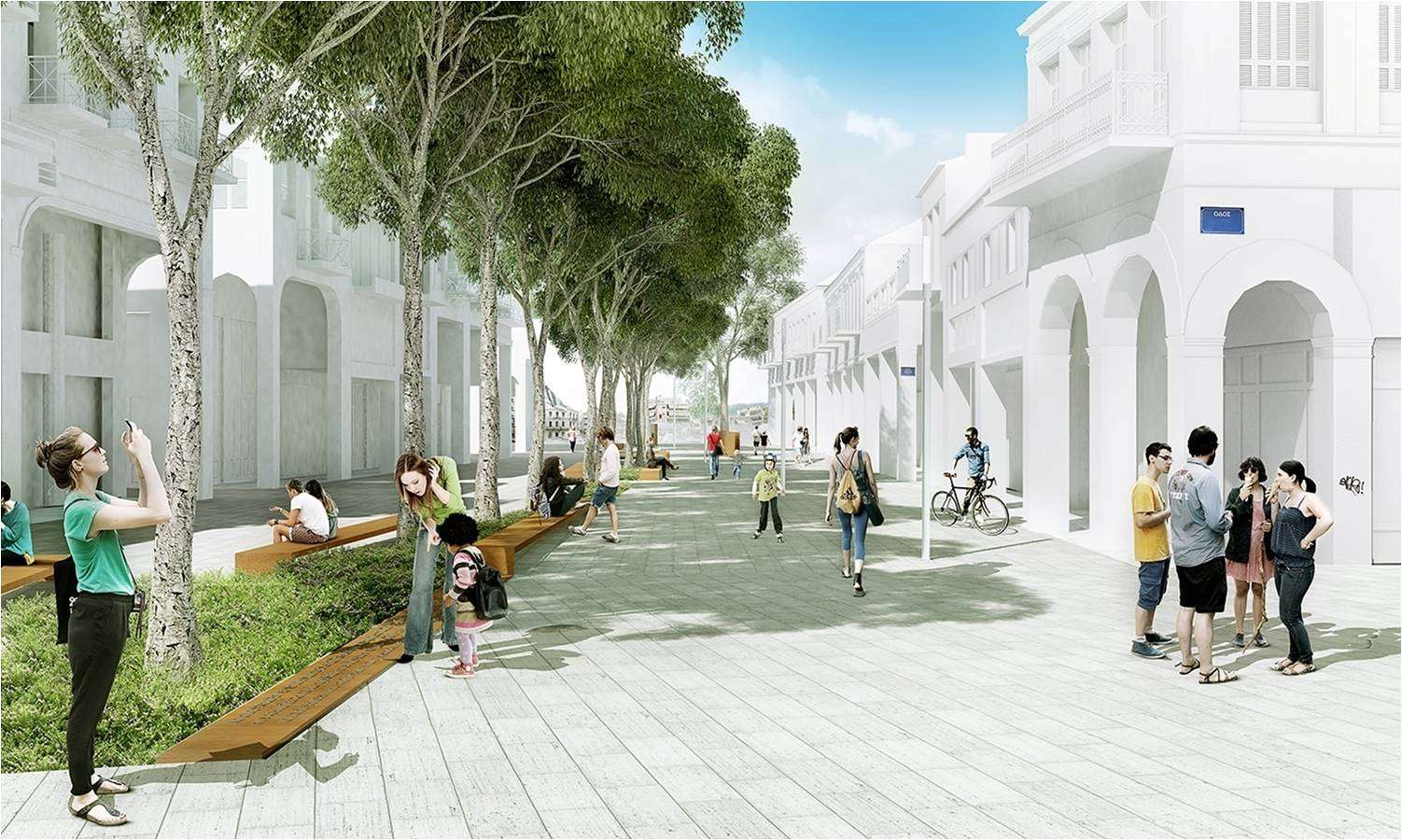
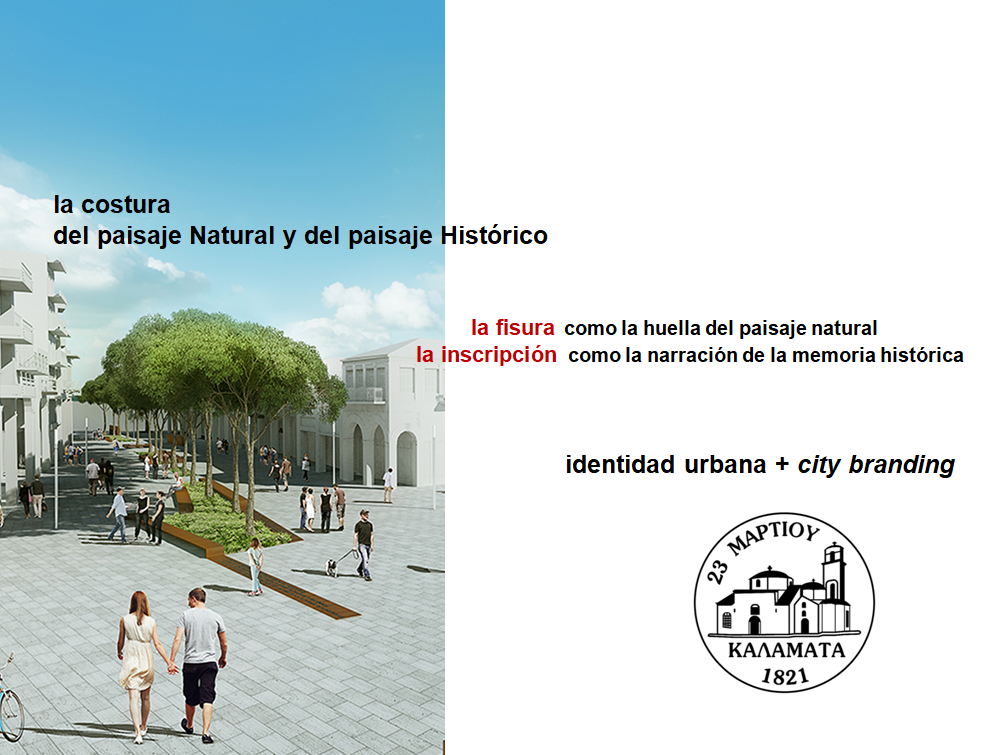
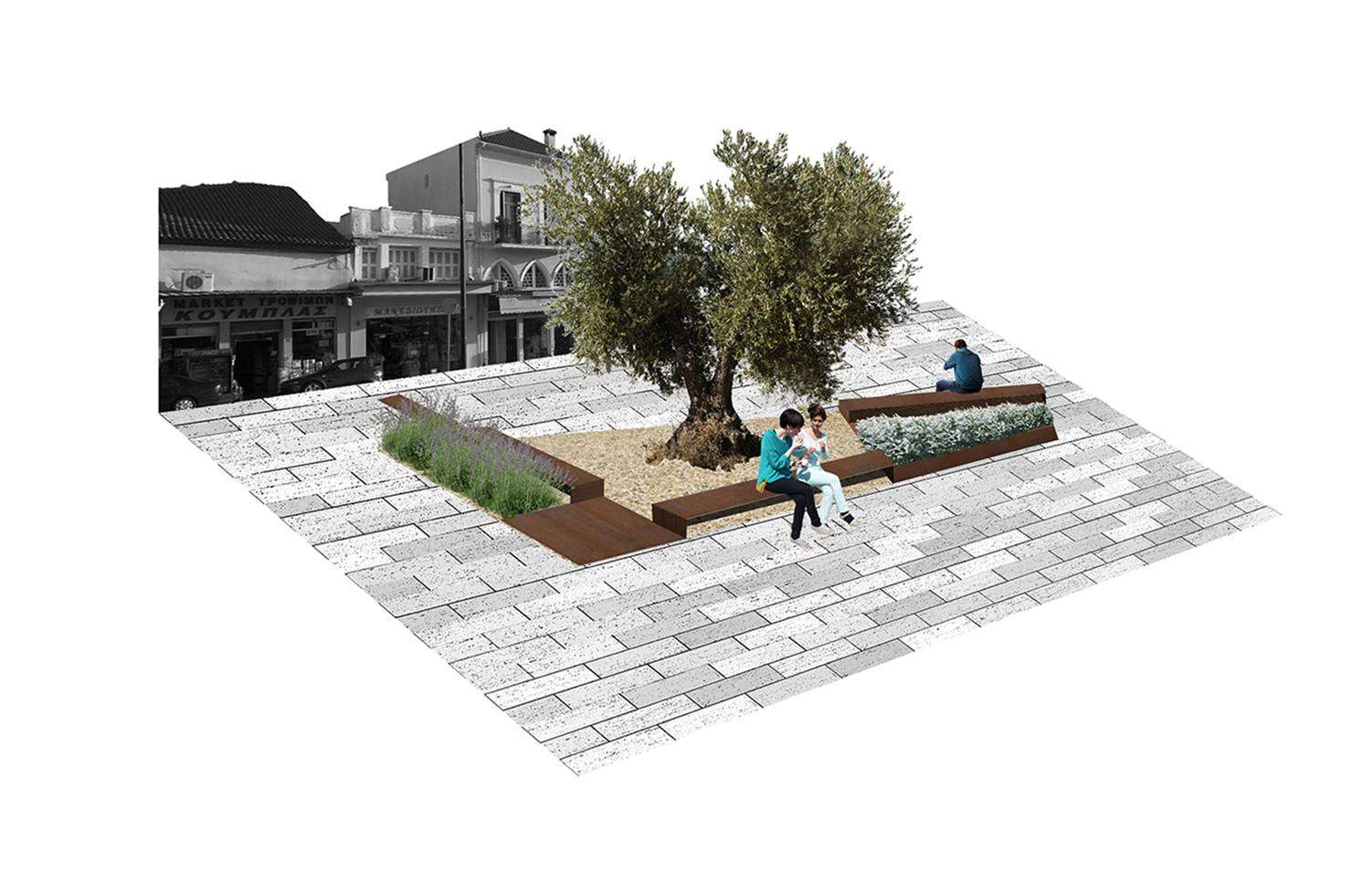
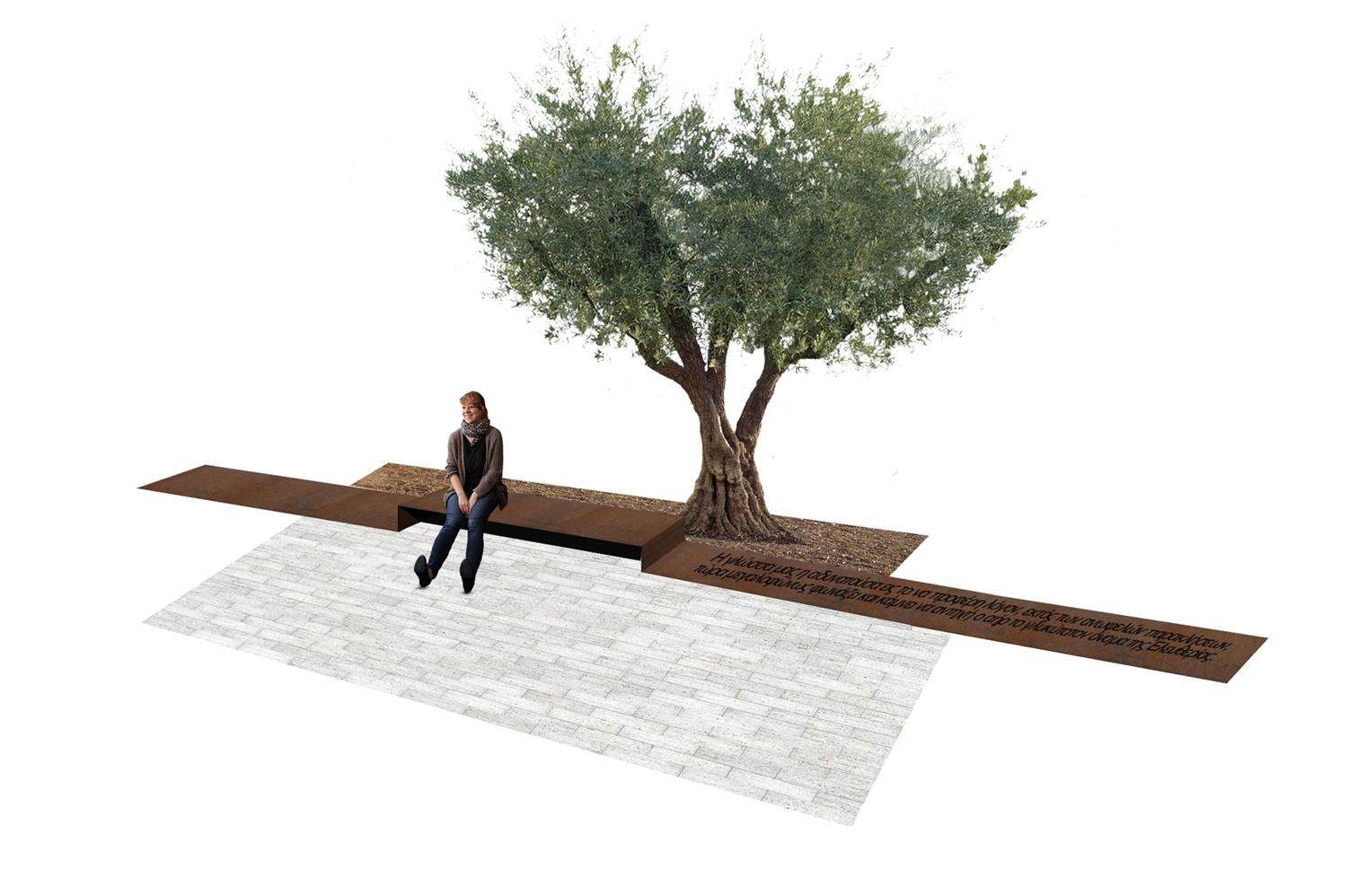
Rediseño de la calle 23 de Marzo para unificar el Centro Histórico y Comercial de la ciudad de Kalamata
Redesign of 23 March Street in order to unify the Historic and Commercial Center of the city of Kalamata
Architectural concept
The main purpose of the architectural proposal is to connect the historic center with the wider town fabric, through the stitching of the Natural and Historic Landscape. The urban design implements a unified urban surface, that pedestrianizes the 23rd March street and its perpendicular streets, creating the appropriate interconnections for the bidirectional link of the area and the connection of the historic center.
The goal is to highlight the elements of the pre-existing natural and historic landscape, the cultural elements of the Place, in order to bring out a united urban identity. Targets the connection of the discrete urban identity with the city branding, through relating: relating:relating:
- the collective memory
- the attractive characteristics of the district
- the historic culture
- the individual local culture
- the local products
The city branding strategy, refers to the management, of the image and the promotion of the identity of the cities, in order to strengthen the sustainable development. Connects in an interdisciplinary way, goals and directions from spatial planning, tourism, geography, economy, management of network tools etc. The cultural heritage, tangible and intangible, and its ímprint in the public space, characterizes the identity of each city, and its recognizable brand name appears as a comparative advantage.
«Culture is the last bastion of the identity of the Place. Identity is understood as a difference, which, in order to demonstrate itself, has only the landscape and culture left, while the rest has been disolved through the global network» (Kunzmann).
The synthesis that implements a unified urban surface of the public space, is designed by two semantic and territorial tools: the crack as a trace of the landscape and the inscription as a narration of the memory.
1__The crack, the removal of the surface:
- expose the natural elements, the land, the greenery, the water
- allows the planning of a linear course that defines the movement, the flow, the halt.
The crack as a trace of the landscape, it is presented as: ground _ urban skin _ granite, paving stones, soil, gravel stones water _ Nedontas river, urban wells _ water jets green _ symbol of peace _ olive tree . _ agricultural product _ herbs, ficus tree, palm trree, plane tree
2__The inscription, the integration of the architectural elements that:
- highlight the historical memory
- narrate the historical impact
The inscription as a narration of the memory, it is presented as: oxidized metal sheet (corten) _ inscription and posture zones treated plaster _ midwalls for inscriptions and projectios
